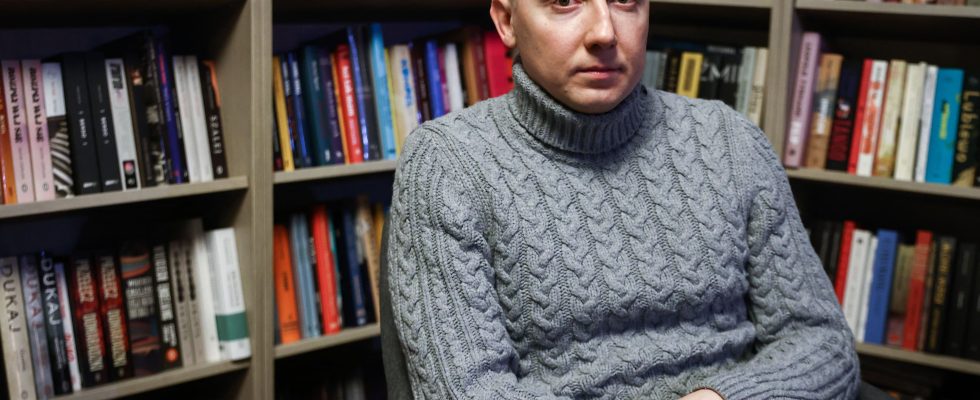For twenty-eight months, Stanislav Asseyev “stayed” at 3, rue du Chemin-Radieux. At this address, whose name refers to Lenin’s promise of a better future thanks to communism, is a Donetsk factory, transformed into an artistic center before the Donbass war in 2014. Seemingly banal, this area industrial hosts one of the most important torture centers in the Russian repressive system: Isolatsia.
On May 11, 2017, Stanislav was arrested by Moscow’s henchmen. Held for a month and a half in a cellar, he was then sent to Isolatsia prison for his work as a journalist. In a book remarkable for the finesse of its observation of human nature, Donbass, a journalist in camp tells (ed. Atlande), the reporter narrates the daily life of what the prisoners call “the Dachau of Donetsk”: living with a bag on their head, with a toilet bucket and the ban on looking at the camera that films them for 24 hours out of 24. It describes forced labor, lack of hygiene, torture with electricity on the genitals, humiliation, suicidal thoughts, loss of notions of time and humanity.
With the large-scale war occurring in 2022, war crimes committed by Russia have increased. Human rights defenders have identified dozens of places of illegal detention in the occupied territories, like Isolatsia. And the time of reckoning is approaching. For two years, dozens of organizations have been assisting justice by documenting evidence and searching for the executioners who shattered so many Ukrainian lives.
Freed during a prisoner exchange, Stanislav learns in 2020 that his executioner, Denis Koulikovsky, alias Palych, lives in kyiv! This native of Donbass not only ordered torture in the Isolatsia center, but he beat, raped and killed the captives himself. He was so cruel that the guards had set up a room for him in the courtyard to avoid being victims of his drunken violence themselves. “This war is about people like me, people who will stop at nothing: the screaming, the tears […] Here, it is I who am God, ruler and judge. Yes, I torture but I get the result,” he told Stanislav at the time. One day, Palych disappeared. We later learned that he was tortured by his own heads of the security services ( FSB) before fleeing to Kiev, serving as an informant for the SBU, the Ukrainian secret service… then disappearing again.
More than 300 perpetrators of war crimes listed
But Stanislav finds his trail. In November 2021, Palych was arrested and sentenced to 15 years in prison. “One of the greatest successes of my life,” breathes Stanislav, whose friendly face hides an unfailing determination to obtain justice. “When I was on my knees, in the solitary confinement cell, with my hands behind my head, and he gave the order to beat me, I never imagined that he would one day be convicted by a Ukrainian court .”
If the death of certain criminals gives “a form of satisfaction” to the victims, Stanislav believes that it is better to judge them. Thus, the arrest of his torturer prompted the journalist to create the Justice Initiative Fund, an online platform on which more than 300 perpetrators of war crimes are listed and where people pay for information – up to $3,650 . “The goal is to combine the American approach, such as the FBI which gives rewards for information, and those of Israel which, since its creation, has been looking for Nazis all over the world,” explains the journalist, today on the front to fight the Russian army.
The site functions as “an intermediary between the secret services and the informants who can tell us the whereabouts of war criminals.” Often, the informants are Russian citizens who remained in the Federation, but in contact with the opposition in exile. They act more out of ideology than money. “For two years, we have been emphasizing that it is important for Ukraine, but also for humanity, to try all war criminals,” said Stanislav. “And to show that we cannot kill and torture in the ‘impunity.”
.
